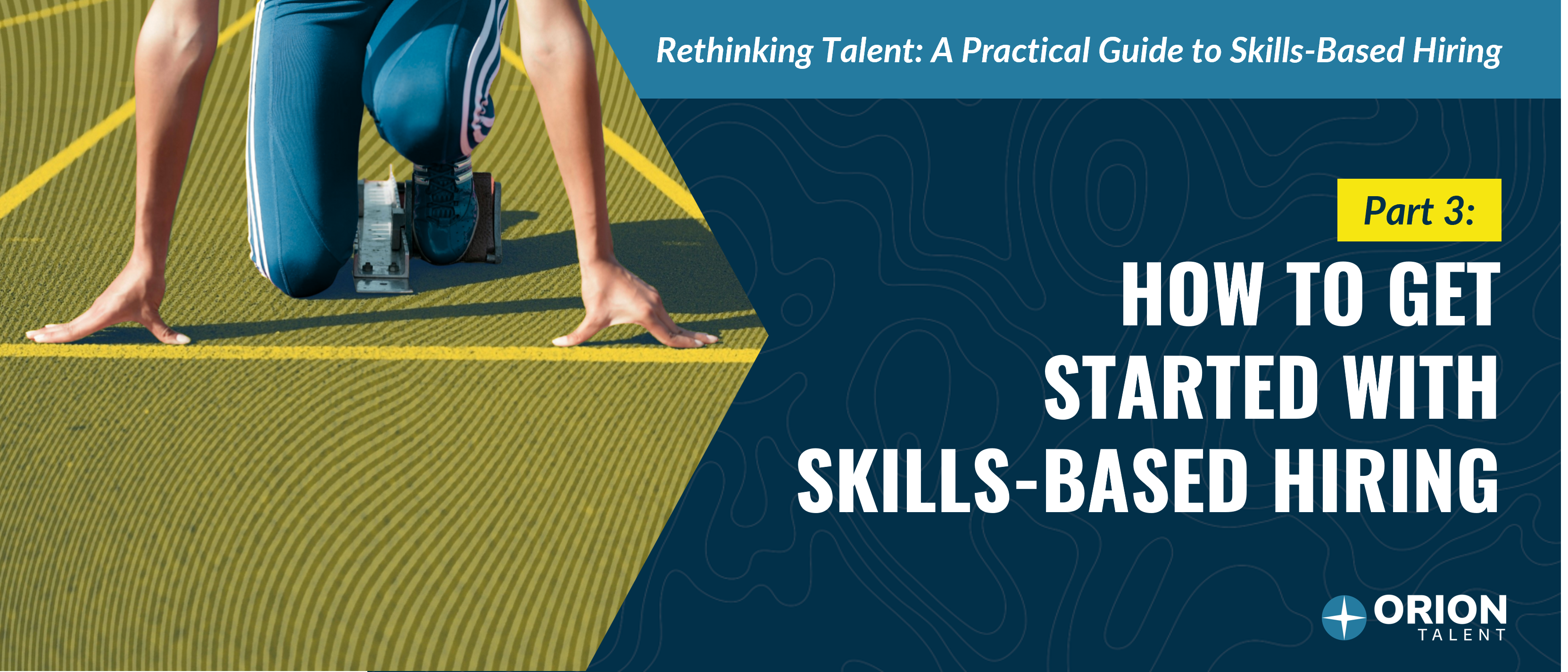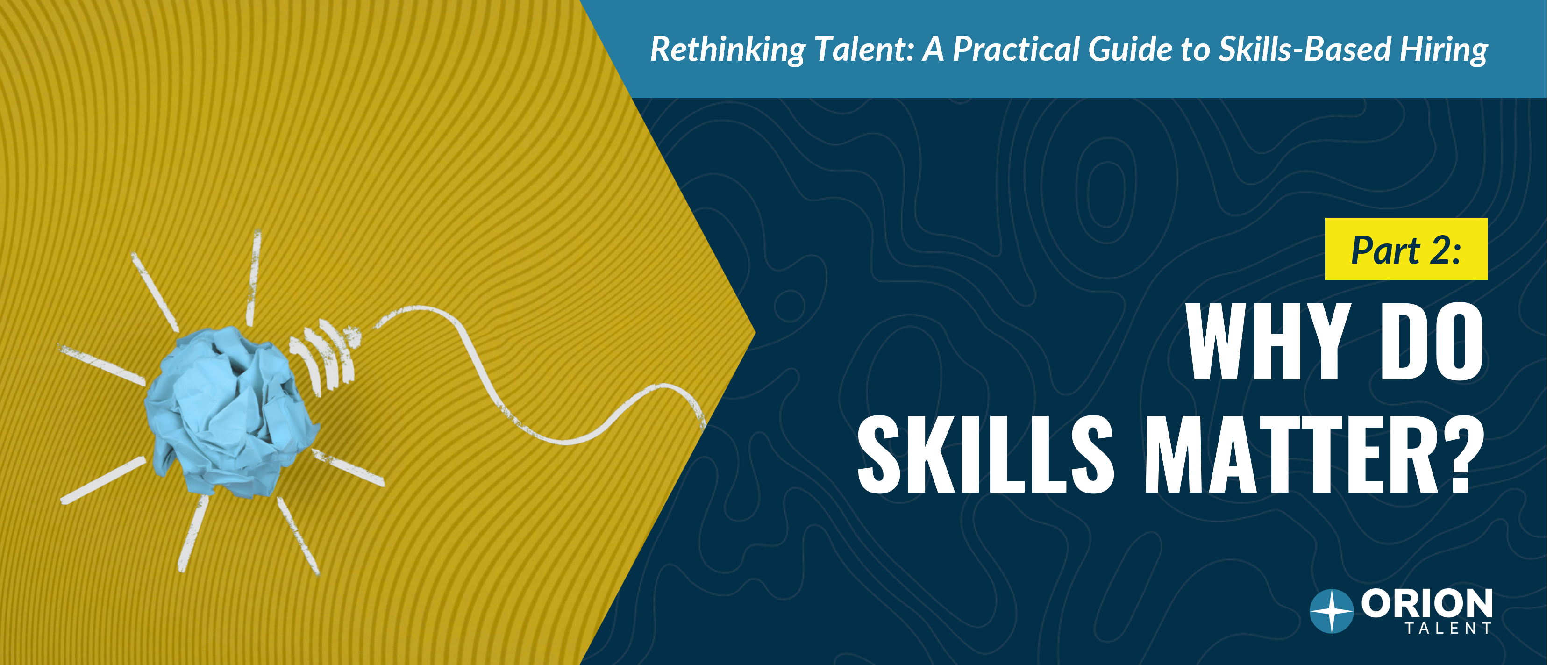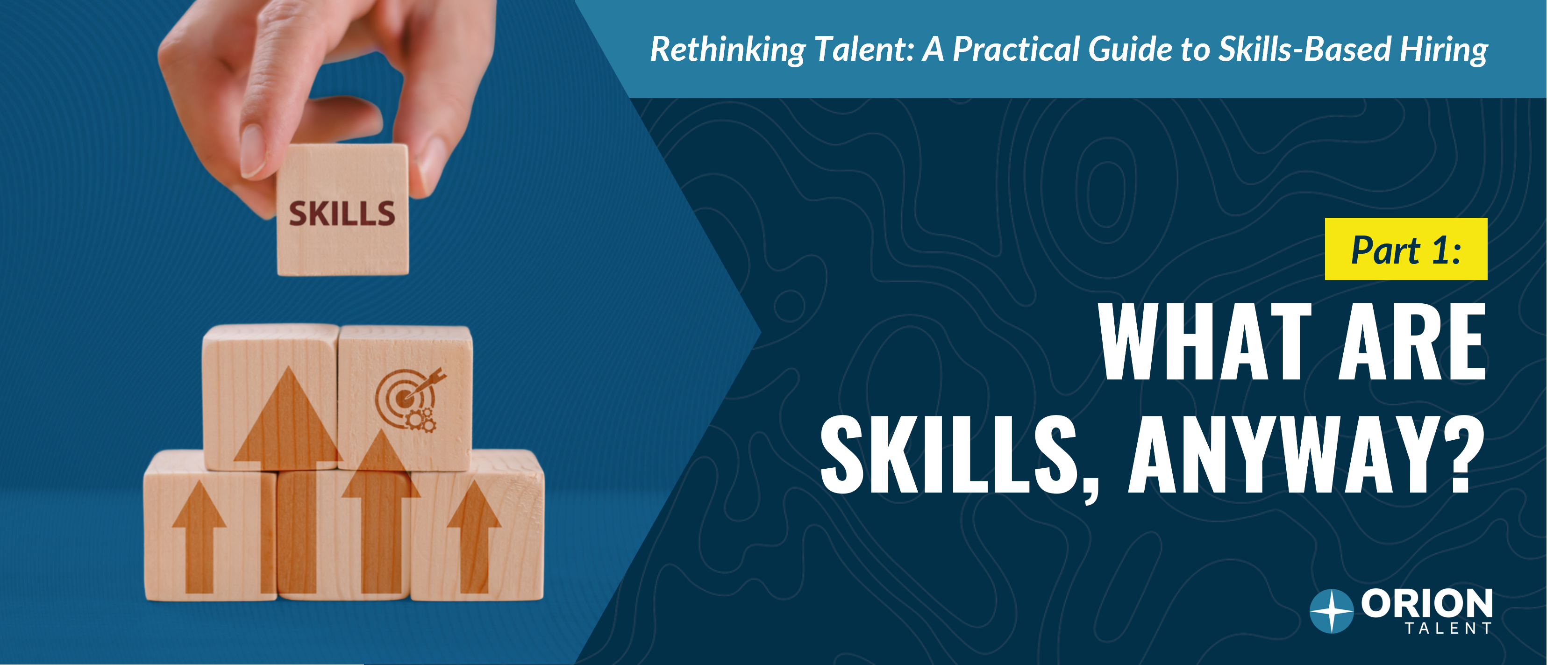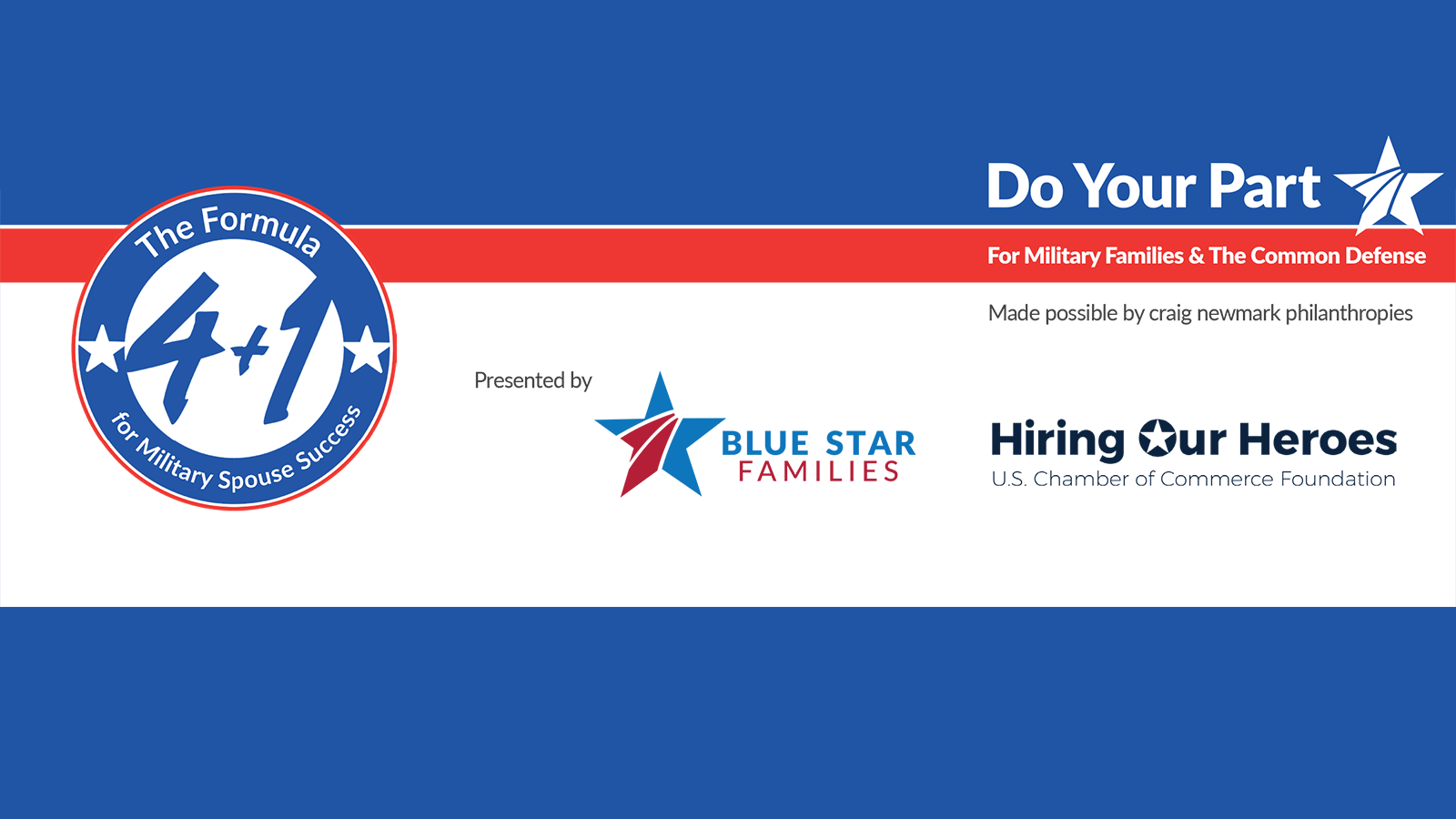
There is good news for the state of disability hiring. A headline for the Kessler Foundation proclaimed “Employment of people with disabilities reached new levels in 2022, outperforming their peers without disabilities.” In the article, co-author Dr. John O'Neill, Ph.D. explains, "Today, more companies are partnering with disability organizations in their recruitment efforts. And more are using outside assistance for onboarding workers with disabilities. We also see more employers adopting training on disability issues and cultural competence in 2022 and reaching out to government and local resources regarding the provision of accommodations."
This is an important shift in disability hiring that highlights the need for companies not already actively recruiting people with disabilities to begin to do so now. Not only is this an untapped and talented candidate market ideal for building a more diverse workforce, but the decision to focus on disability inclusion also positively affects the bottom line. An Accenture report titled, Getting to Equal: The Disability Inclusion Advantage, reveals that companies that have improved their inclusion of persons with disabilities over time were four times more likely than others to have total shareholder returns that outperform those of their peer group.
Disabilities Come in Many Forms – And Not All of Them Are Outwardly Visible.
To begin an analysis of how to create an equitable work environment for those with disabilities, you must first understand what a disability is. Disabilities are not always physically apparent, as they may manifest cognitively, psychologically, emotionally, or in other “invisible” ways. Examples of “invisible” disabilities are migraines, epilepsy, ADHD, dyslexia, or fibromyalgia. According to the CDC, up to one in four adults have some type of disability. That is a significant portion of the population that should not be overlooked when hiring your next employee.
It is also important to consider the social model of disability when thinking about disability, as well. This model asserts that, unlike the medical model, people with these differences are only disabled because of the barriers in their daily life, not by their abilities. As businesses look to hire from this talented candidate pool, an understanding of this model will greatly improve your accommodations, recruitment strategy, and support of this group.
The Americans with Disabilities Act: Landmark Legislation for Disability Equity.
Employers need to familiarize themselves with the Americans with Disabilities Act (ADA), which was passed in 1990 and prohibits employers from discriminating against candidates or employees based on disabilities. In particular, it establishes that employers must provide an equal opportunity to benefit from things like recruitment, hiring, promotions, training, pay, and social activities. It also requires reasonable accommodations defined as a modification or adjustment to a job, the work environment or the way things are usually done during the hiring process.
What Do Disability Accommodations Entail?
Accommodations are highly dependent on the specific disability of the person. Installing a ramp, providing a screen reader, allowing service animals, or adjusting work schedules are all examples of this. When in doubt, just ask.
Asking is a simple way to let a person with disabilities know they are an important part of your company. An example of this is including a quick note asking if any accommodations are needed when scheduling meetings or interviews. This signals to the employee/applicant that your company is an inclusive one that understands the need for all types of accommodations. You should also prepare all meeting attendees or interviewers for the accommodations, so you don’t have a presenter, for instance, pointing to information with a blind candidate.
And then, be sure to retain this information so the candidate/employee is not asked for their accommodations each time they are at work, in a meeting, or come in for another interview. Most of all, keep the whole process seamless and comfortable. Don’t be seen rushing around to provide the accommodations. With a little planning, you will have created a welcoming and inclusive environment for people of all abilities.
Hiring People with Disabilities
As part of your diversity sourcing strategy, here are some tips for creating an equitable workplace for disabled employees:
Consider the type of work, and communicate relevant requirements in your job posts
Job posts are often the first introduction a candidate has to your company, so it is important to present your opportunity in the right light. You can do this by using inclusive language. Instead of “type reports” you may write “enter” or “input reports.” Another example would be replacing a requirement to “be able to lift 25 pounds” with “move equipment up to 25 pounds.” In these cases, it is not important how the report is entered or the 25 pounds is moved, just that it is accomplished.
Educate your employees and managers about disability equity.
It is important that your employees understand the value of inclusiveness in your work culture. Training can be a great way to start a conversation and define clear examples of what is expected of your employees. For many, learning about the nuances of disability and how it manifests is eye-opening and conversations on able-ism and the type of language common in the workplace often become quite productive.
Implement clear-cut policies and training for disability hiring and disability accommodations.
Your hiring team should be well-versed in providing reasonable accommodations, avoiding rigid policies, and be fully invested in the hiring of people with disabilities. After all, it is the law. Your team should not automatically refuse requests and also understand that, as the EEOC points out, a person’s request for accommodation does not have to be in writing or include the terms "reasonable accommodation," "Americans with Disabilities Act," or "disability."
Consider adapting your workplace to better accommodate people with disabilities.
As mentioned above, this could mean ramps or captioned telephones or specific computer software. It is the law that these employees are accommodated, and most accommodations carry very little cost in comparison to the benefit you receive of having a happy, engaged employee.
Getting Started With a Diversity Hiring or Disability Hiring Program
Actively recruiting people with disabilities gives businesses a distinct advantage. This diverse group brings new ways of thinking, perceiving, and experiencing the world to your organization and should be considered an asset. Providing reasonable accommodations may seem complicated or expensive at first glance; but this is not usually the case, and you get so much more out of it than you put in financially. Aside from being the law, providing a welcoming, safe, and productive work environment encourages disabled employees and shows prospective ones that they are seen and respected.
HirePurpose® Diversity Sourcing and Talent Attraction from Orion Talent is an excellent way to connect with disabled job seekers and build a diverse workforce. You can attract qualified disabled candidates and exceed your high volume, talent community and diversity hiring goals, all while building a culture where all employees can bring their authentic selves to work each day. Contact us today!
Archives
- February 2026
- January 2026
- December 2025
- November 2025
- October 2025
- September 2025
- August 2025
- July 2025
- June 2025
- May 2025
- April 2025
- March 2025
- February 2025
- October 2024
- May 2024
- March 2024
- February 2024
- January 2024
- December 2023
- November 2023
- October 2023
- September 2023
- August 2023
- July 2023
- June 2023
- May 2023
- April 2023
- March 2023
- February 2023
- January 2023
- December 2022
- November 2022
- October 2022
- September 2022
- August 2022
- July 2022
- June 2022
- May 2022
- April 2022
- March 2022
- February 2022
- January 2022
- December 2021
- November 2021
- October 2021
- September 2021
- August 2021
- July 2021
- June 2021
- May 2021
- April 2021
- March 2021
- February 2021
- January 2021
- December 2020
- November 2020
- October 2020
- September 2020
- August 2020
- July 2020
- June 2020
- May 2020
- April 2020
- March 2020
- February 2020
- January 2020
- December 2019
- November 2019
- October 2019
- September 2019
- August 2019
- July 2019
- June 2019
- May 2019
- April 2019
- March 2019
- February 2019
- January 2019
- December 2018
- November 2018
- October 2018
- September 2018
- August 2018
- July 2018
- June 2018
- May 2018
- April 2018
- March 2018
- February 2018
- January 2018
- December 2017
- November 2017
- October 2017
- September 2017
- August 2017
- July 2017
- June 2017
- May 2017
- March 2017
- February 2017
- January 2017
 RSS Feed
RSS Feed




















